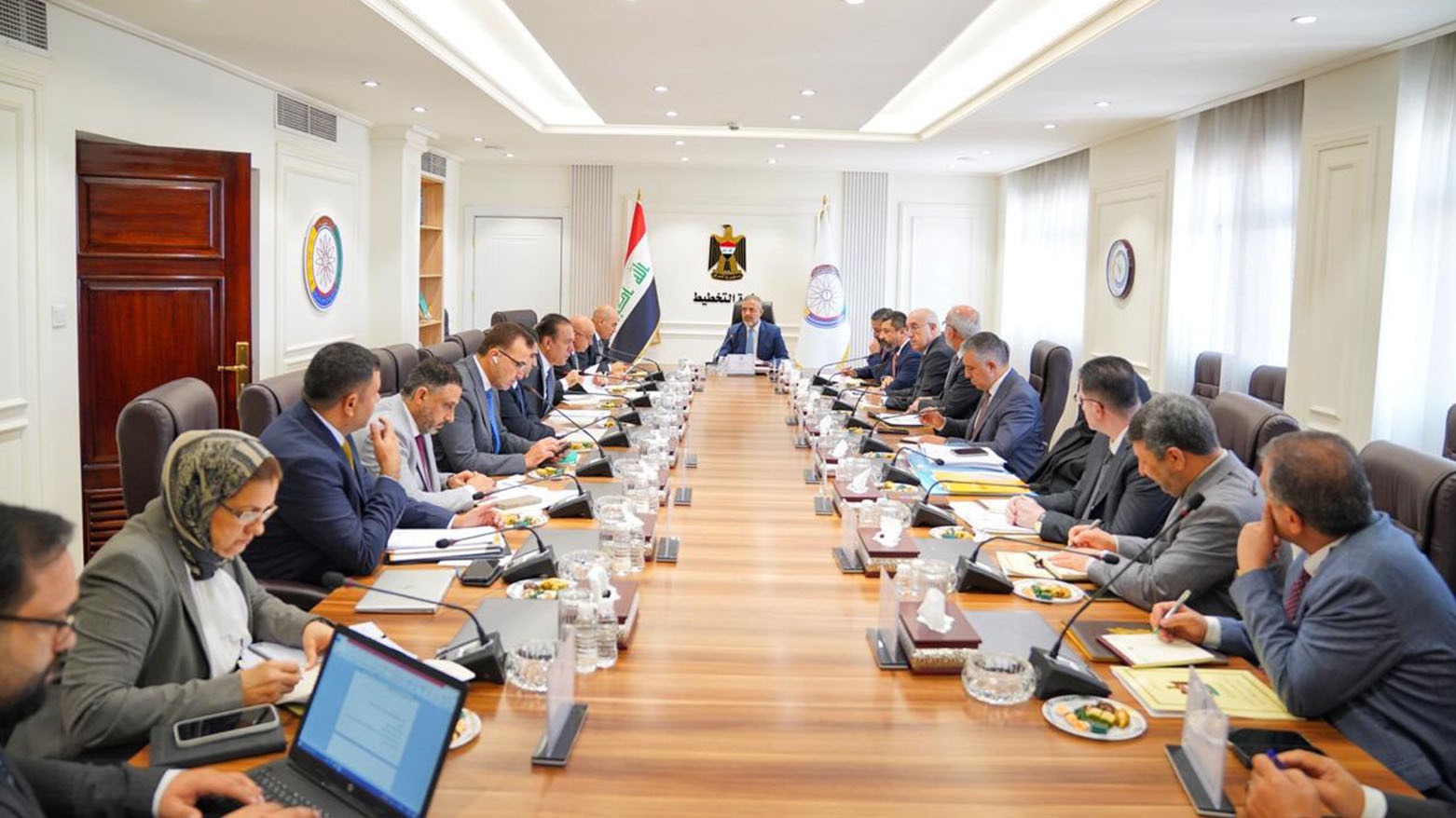Federal and KRG Officials Meet to Advance Key Disputed Economic and Energy Files
The joint meeting highlights progress on resuming Kurdistan oil export, the KRG non-oil revenues issue, and the integration of KRG employees into the federal payroll system.

ERBIL (Kurdistan24) — Deputy Prime Minister and Minister of Planning, Mohammed Ali Tamim, chaired an expanded joint meeting on Tuesday between Iraq’s federal government and the Kurdistan Regional Government (KRG), aimed at discussing progress on key shared dossiers. The meeting brought together ministers, deputy ministers, and senior directors from both sides.
Meeting participants reviewed advances on long-standing files between Baghdad and Erbil, including the production and export of oil, non-oil revenues, and the integration of KRG employees into the federal payroll system.
Officials noted that significant progress has been achieved, particularly regarding oil production and export from the Kurdistan Region. All necessary conditions and requirements have reportedly been completed to begin production and export through the state-owned Iraq National Oil Marketing Company (SOMO).
The meeting also agreed to continue discussions to finalize the remaining requirements related to other pending issues.
From the federal side, attendees included the ministers of Housing, Higher Education, Health, and Justice, as well as the Deputy Minister of Oil for Extraction Affairs, general directors from the Legal Departments of the Ministry of Finance and the General Secretariat of the Council of Ministers, the Financial Control Bureau, and other senior directors from the Ministries of Oil and Finance.
Representing the KRG were the Minister of Natural Resources, the Chief of Staff, and the Secretary of the Council of Ministers, the head of the KRG representation in Baghdad, and several general directors.
The coordination between Baghdad and Erbil on oil, finance, and civil service matters has been a central issue in Iraq’s federal–regional relations for over a decade. Disputes over oil exports and revenue sharing have at times escalated into political and economic standoffs, affecting national budgets and regional stability.
The relationship between Baghdad and Erbil has long been fraught with tension, as successive federal governments in Baghdad have repeatedly sought to restrict the Kurdistan Region’s economic independence. In particular, Baghdad has blocked the export of Kurdish oil and delayed or halted the disbursal of salaries to KRG employees, undermining the region’s financial stability.
Critics argue that these policies have been applied systematically to weaken Kurdistan economically, despite the clear guarantees of autonomy and fiscal rights provided under the Iraqi constitution. For decades, the federal government’s actions have violated the constitutional and political rights of the Kurdish people, fueling mistrust and prompting the KRG to pursue independent measures to protect its resources, ensure the payment of its workforce, and maintain its economic and administrative autonomy.
